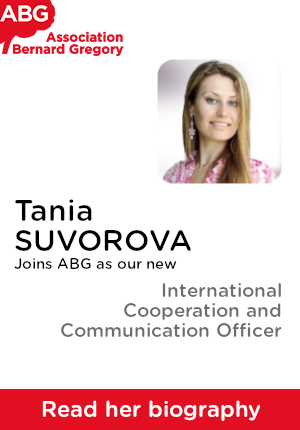sustainable surface treatment methods for superconducting radiofrequency (SRF) cavities
| ABG-133818 | Thesis topic | |
| 2025-10-14 | Partial or full private funding (CIFRE agreement, foundation, association) |
- Chemistry
- Materials science
- Engineering sciences
Topic description
The European Organization for Nuclear Research (CERN) develops cutting-edge particle accelerator technologies with a focus on reducing the environmental footprint of its infrastructures. This PhD project will investigate innovative, sustainable surface treatment methods for superconducting radiofrequency (SRF) cavities, critical components of large accelerators that generate the electromagnetic fields used to accelerate particles.
CERN employs SRF cavities made from high-purity bulk niobium or niobium-coated copper. The performance of these cavities depends heavily on the quality of their inner surface. At CERN, electropolishing (EP), an electrochemical process that smooths and cleans the surfaces, is the standard treatment. This project will explore greener and more efficient alternatives to current EP techniques for both niobium and copper cavities.
The research programme will include:
Pulsed EP for copper cavities - Evaluate the feasibility of pulsed electropolishing to replace conventional DC EP, from sample-scale trials to full-size 1.3 GHz and 400 MHz cavities, aiming to optimise surface roughness at both micro and macro scales.
DES-based EP for niobium - Replace the current Buffered Chemical Polishing (HF, HNO3, H3PO4) with a deep eutectic solvent (DES) electrolyte. Select suitable solvents, define operating parameters, simulate the process for cathode design, and test on 1.3 GHz cavities to assess performance impact.
DES-based EP for copper and alloys - Investigate the applicability of DES electrolytes to copper and Cu-based materials (e.g., W:Cu), optimising process parameters and assessing surface quality.
This work will contribute to more sustainable manufacturing of SRF cavities while supporting CERN's mission to develop environmentally responsible accelerator technologies.
Starting date
Funding category
Funding further details
Presentation of host institution and host laboratory
The PhD candidate will be hosted at CERN (Geneva - Switzerland) in the Surface Coatings and Chemistry section under the supervision of Dr. Guillaume Rosaz, the section leader, Leonel Marques Antunes Ferreira the principal chemical engineer and Benoit Teissandier, the chemical analysis laboratory responsible. The thesis will be carried out in collaboration with Institut UTINAM from Université Marie et Louis Pasteur (Besançon - France) under the academic supervision of Dr. Marie-Laure Doche and Pr. Jean-Yves Hihn.
Short periods in Besançon may be scheduled.
Website :
PhD title
Country where you obtained your PhD
Institution awarding doctoral degree
Graduate school
Candidate's profile
Holding a master degree in Material Science, Material Chemistry or Chemical Engineering, the candidate should have a solid scientific and technical background in physical chemistry and surface characterization of metallic materials. Skills in the fields of electrochemistry and galvanic surface treatments will be appreciated.
A strong involvement in experimental approaches is expected from the candidate.
She/He will be assisted in the development of a modelling approach (using a commercial finite element software) to support experimental results.
As the project involves two laboratories (CERN and UTINAM) in two remote places, she/he must adaptable and have good communication skills.
Speaking French is an additional asset
Vous avez déjà un compte ?
Nouvel utilisateur ?
Get ABG’s monthly newsletters including news, job offers, grants & fellowships and a selection of relevant events…
Discover our members
 PhDOOC
PhDOOC  ADEME
ADEME  Ifremer
Ifremer  ONERA - The French Aerospace Lab
ONERA - The French Aerospace Lab  SUEZ
SUEZ  CESI
CESI  Tecknowmetrix
Tecknowmetrix  Servier
Servier  ASNR - Autorité de sûreté nucléaire et de radioprotection - Siège
ASNR - Autorité de sûreté nucléaire et de radioprotection - Siège  MabDesign
MabDesign  Institut Sup'biotech de Paris
Institut Sup'biotech de Paris  Laboratoire National de Métrologie et d'Essais - LNE
Laboratoire National de Métrologie et d'Essais - LNE  TotalEnergies
TotalEnergies  Généthon
Généthon  Nokia Bell Labs France
Nokia Bell Labs France  Groupe AFNOR - Association française de normalisation
Groupe AFNOR - Association française de normalisation  CASDEN
CASDEN  ANRT
ANRT  MabDesign
MabDesign  Aérocentre, Pôle d'excellence régional
Aérocentre, Pôle d'excellence régional

